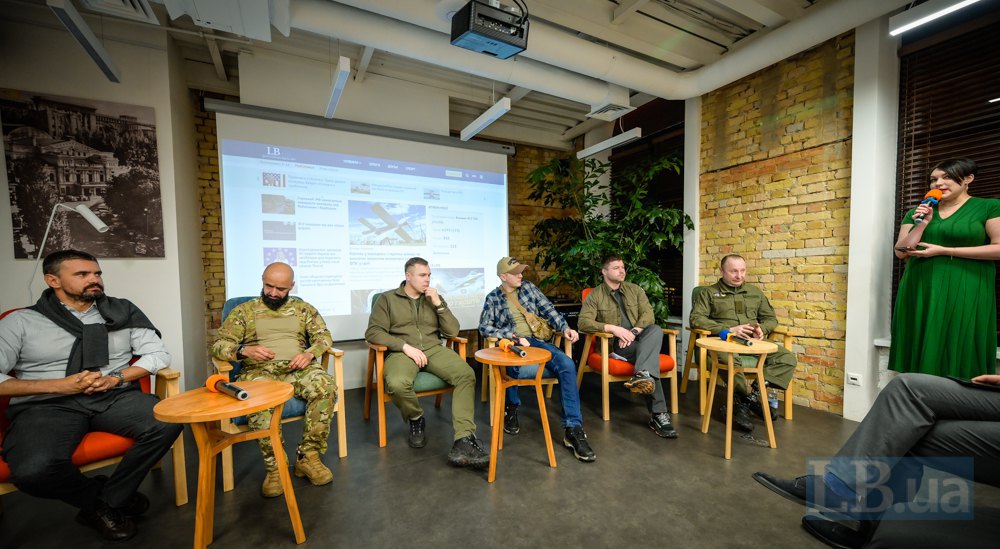Abandoning the Soviet policy of benefits for veterans
Currently, Ukraine has a policy of benefits and services for veterans that was established by a 1993 law, says Oleksandr Porkhun, acting Minister of Veterans Affairs, Hero of Ukraine, veteran, who actually took over the ministry in early February when Yuliya Laputina was dismissed. For 30 years, the law has been amended, but in fact, social protection in Ukraine does not work, the expert says: "Almost 70 per cent of veterans are unaware of the benefits and services guaranteed to them."
This is confirmed by the findings of the Accounting Chamber on the activities of the Ministry of Veterans Affairs, which were read out during the discussion by the founder of FinStream and Cronvest, chairman of the Association of Veteran Entrepreneurs, and junior lieutenant of the National Guard of Ukraine, Serhiy Poznyak. ATO participants are not informed about the essence of the services to which they are entitled by law, it says.
The situation is similar with active military personnel, says Yuriy Hudymenko, a public and political figure, leader of the Demsokyra party, who also serves in the Armed Forces. They do not know anything about the benefits guaranteed by the state, and sometimes they just make them up.
Human rights activist and Armed Forces captain Masi Nayem admits that he tried to take advantage of the only benefit he knew about, that is to apply for a subsidy for utility bills. But it looked more like "mockery than help". He does not know about other benefits and services, and notes that the system simply "does not see" a veteran if he does not contact it.
The panelists suggested that the current policy of benefits for veterans should be abandoned as an outdated relic of the Soviet era. The interim head of the Ministry of Veterans Affairs, Oleksandr Porkhun, supported this idea.
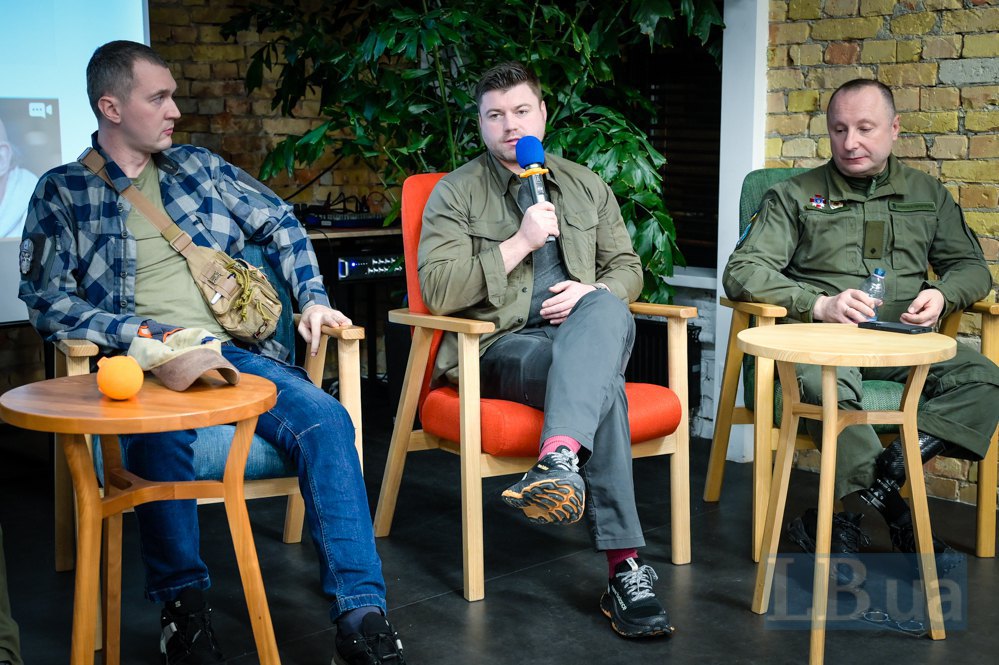
"My position is that I am against benefits. Now the Ministry wants to introduce a completely different concept. We want to provide veterans with development tools. They can include many things, starting with education or retraining. Because talking to veterans, to their friends... they change during the war. He can join the army being a musician, and when he comes back, he doesn't want to be a musician anymore. He wants to be a programmer," said Porkhun.
Attitudes towards veterans
"The law of Ukraine on the status of war veterans states in the very first line that this law promotes respectful attitudes towards them in society," Masi Nayem recalled. "The Young Business Club (attending the Young Business Club forum for young entrepreneurs, Olena Tolkachova, head of the Azov Angels patronage service, was reprimanded for her military uniform because it scared men in the audience - Ed.note) and other things show whether it exists," he said.
Junior lieutenant and entrepreneur Serhiy Poznyak gave a similar example.
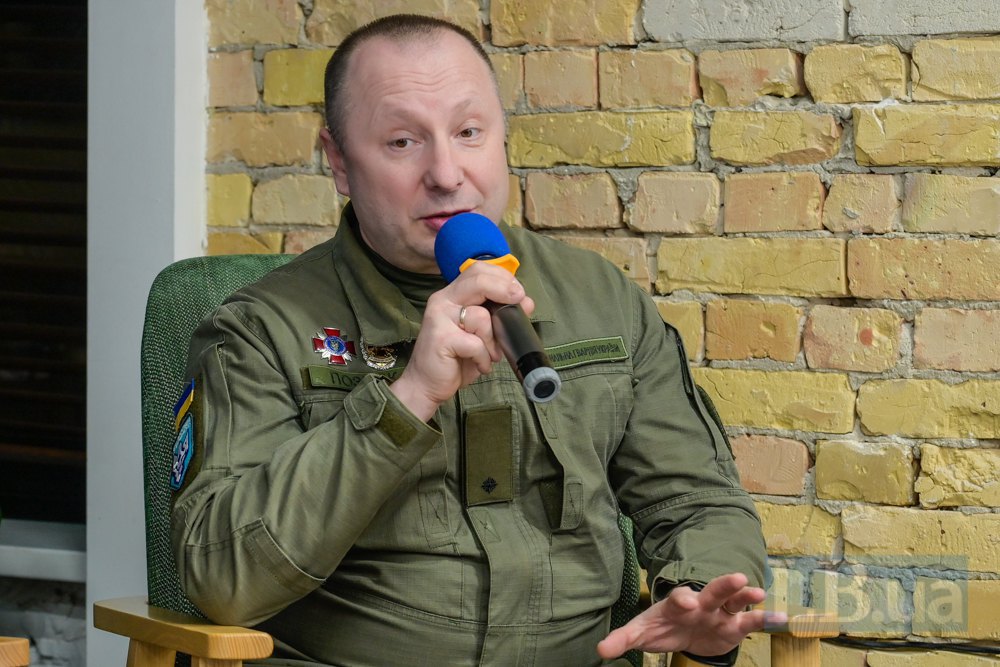
"I raise funds for veteran-owned businesses, we have various financial instruments, bonds, and I negotiate with businessmen. Most of them listen carefully and say politely: "Serhiy, we are not interested in those who have already returned, who do not defend us, who have thrown their legs and arms away in the field. We will donate to those who can defend our interests. Yes to these, but no to others," Poznyak said.
He also noted that society today does not treat the military as specialists.
"When I was at the international finance panel, I escaped from the hospital, in my uniform, without a prosthesis, without a leg, on crutches. I was sitting there. And there were representatives of USAID, various executives (from the financial sector - ed. note). They are talking about finance. One of them, I won't mention his name, takes the microphone and says: 'I'm even feeling uncomfortable that we have such educated military men.' This is a stereotype. The microphone comes to me, and I say: 'Of course, you're used to the idea that the military should be stupid, in a dirty uniform, begging for a land plot.'
I also had a conversation with a lawmaker. I asked why there was not a single combatant in the working group working on the draft law on veterans. The answer was that laws should be written by lawyers, not veterans," said the founder of FinStream and Cronvest.
"The decades-long attitude of the state towards veterans, which dates back to Soviet times, has led to the fact that society does not really need a veteran. It does not need them. Society needs a portrait of a veteran. A portrait has a huge advantage since it does not speak. And if this portrait has a black ribbon at the bottom, then okay, it's much better than when a veteran opens his mouth and starts expressing his opinion. Society doesn't want to hear his opinion, society wants to put hearts and smiley faces at the bottom. Because society now thinks that only a soldier at the front is useful to it, and a veteran is not," said Yuriy Hudymenko. In his opinion, such irrational things as respect, honour and values will become the biggest challenge for society.
Return to peaceful life. Personal experience
During the discussion, the speakers shared their experience of transitioning from combat to civilian life, although most of them continue to serve.
For example, entrepreneur and junior lieutenant Serhiy Poznyak said that when he first returned from the front (from the ATO/JFO zone), his job - entrepreneurship - helped him to adapt.
"After the first iteration, it was really through work. Through entrepreneurship. Entrepreneurship is a clear sublimation of war. There is a battlefield, competitors - enemies, allies - partners. There are victories and, unfortunately, defeats," said Poznyak.
Oleksandr Porkhun, who is now the head of the Ministry of Veterans Affairs, was helped by his family and friends.
"I was 30 years old at the time. I thought: what should I do, feel sorry for myself? Should I whine? No, I had to move forward. My family helped me - that's the main thing. And my friends. Only forward movement, work, communication. I never thought that someone owed me something and that something hurts. Rehabilitation - and off you go," said the Hero of Ukraine.
"For injuries like mine, the state does not provide any rehabilitation," explained Masi Nayyem (a serious head injury, loss of an eye - ed. note) "They just told me: you can go home. Thank God I serve where I serve, and the commander said: 'Are you okay? Will you be there soon? Come back'."
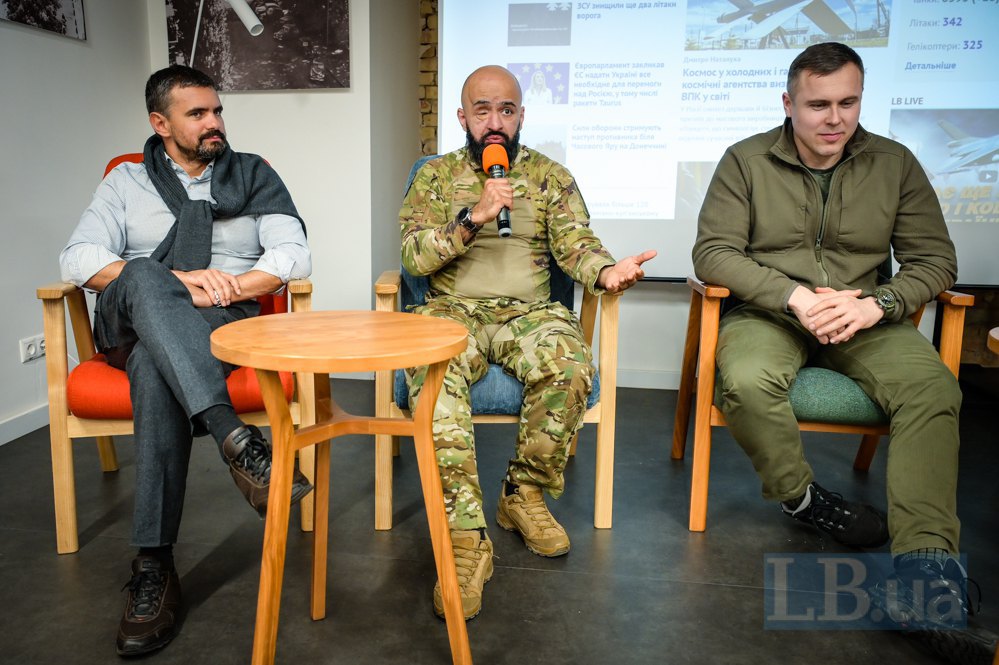
"I read a lot of books and understood the interesting work of the sympathetic and parasympathetic nervous system: the more you hurt yourself, the more awesome it feels later. In the sense that I stand under super-cold water for a minute, then I stand on nails for 10 minutes, and before that I meditate for an hour. And so on every day. If you miss a day, it's very difficult to live. Because any problem is a huge problem and the whole day is wasted. This is the only rehabilitation," the human rights activist said.
Roman Kostenko, an active serviceman and MP, joked that he "came to politics and the war seemed like a fairy tale".
"At some point in the military enlistment office, you realise that your military service is over. And I asked the woman who was putting the stamp directly: 'What should I do?' And she said: 'The exit is right here, and then down the corridor.' The irony is that my military enlistment office in Zaporizhzhya is located in the same building where I went to school from first to third grade. So I know how to get out of there. I just haven't yet realised what to do next," says Yuriy Hudymenko. "In general, there was always something to do. Immediately after I was wounded, a lot of people came to me with offers to do something. So I was constantly involved in some kind of process, because I promised a lot of things and had to work. It seemed to pull me through even in the most difficult times."
Social contract and the foundations of a new veteran policy
To avoid a conflict between the military and people who were not directly involved in the fighting, the social contract in Ukraine needs to change, the panelists believe. It will be formed - with the participation of the state or independently - on the streets, with a high concentration of violence and political manipulation, said public and political activist Yuriy Hudymenko.
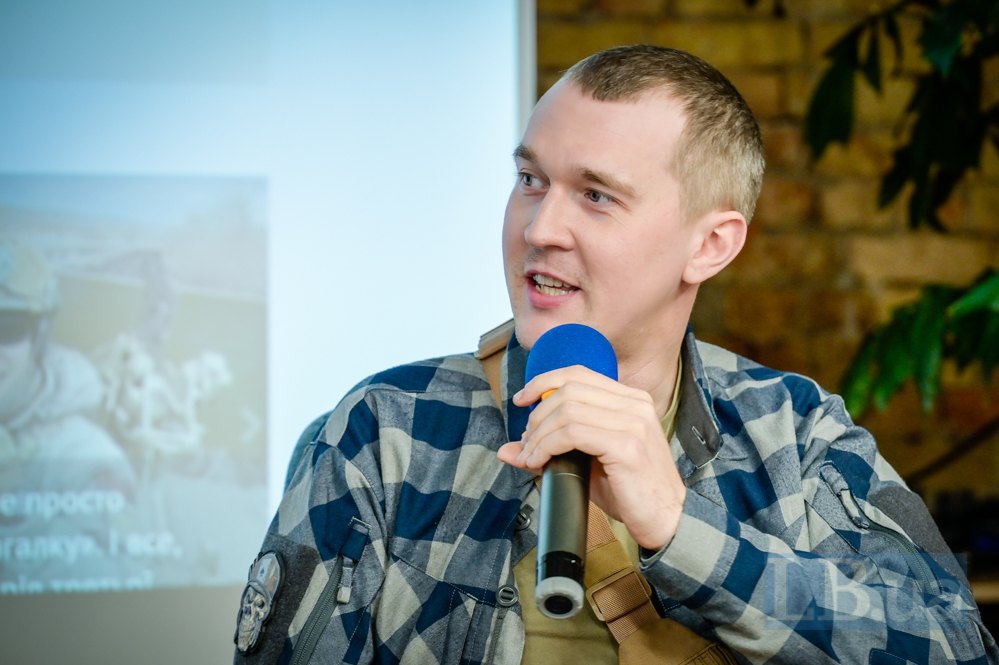
"A soldier who returned from the war has done his job for society. He killed people, someone tried to kill him. He blew himself up, he was cut and sawed in hospitals. I know what it's like. Now society has to do its job for the soldier," said Poznyak.
"There are 40 million of us, and 1 million are fighting. At the level of recruitment, at the level of support during service and at the level of veteran policy, we must now lay down a vision and push forward the message that these 40 million should take care of this 1 million at all stages of their stay in defence of the state.
Different formats can be chosen for this. Perhaps unpopular ones, such as an increase in the military tax or something else that people will pay specifically for the fact that this million fought for them, so that if something happens to a person, they will have benefits, and if they get injured, people will support them for the rest of their lives," suggested ATO veteran and MP Roman Kostenko.
State policy on veterans must guarantee the socialisation of veterans. And the first thing it should ensure is that mental health is maintained on a par with physical health, says businessman and EFI Group supervisory board chairman Ihor Liski.
"These are people who killed, who feel different. For many of them, the war does not end. And they start fighting with Ukrainians, with their families, with themselves, with the whole society, and can simply tear this country apart," said Ihor Liski. The state should be ready to provide assistance and support to some with all due respect, he added.
"Society must return the veteran to the place where he was. Whether they hired him as a mechanic, entrepreneur or something else, he has to come back to that place, return... So that the person becomes part of society again. It is very difficult in reality. But we have to work on it," said ATO/JFO veteran Serhiy Poznyak.
He believes that entrepreneurship is the way that will allow people to reintegrate into society. "Business is a sublimation of war, a very powerful tool. There is no other tool like it to reintegrate veterans into society," said the head of the Association of Veteran Entrepreneurs and a junior lieutenant of the National Guard.
Ihor Liski drew attention to the fact that, according to statistics from 2014-2021, more than 45% of people who returned from the front subsequently changed their field and area of activity, and the main reason was that they were dissatisfied with what they had done before. They did not feel in demand in this profession. "Obviously, there should be support from big business in this aspect," he added.
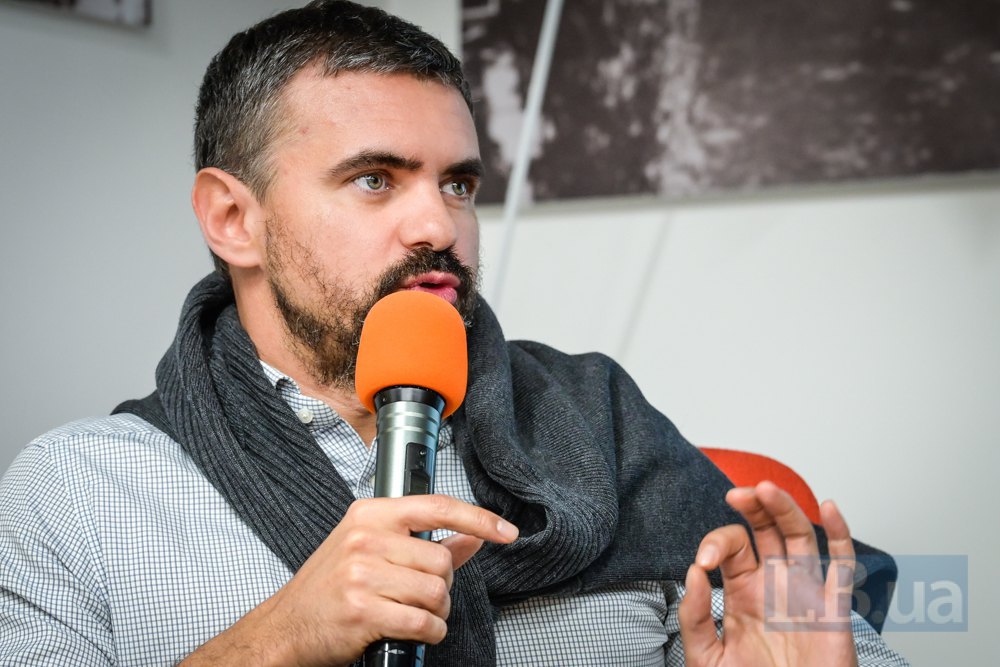
veterans' policy should ensure that the respect for the military is so strong that it is felt by future generations, Masi Nayyem believes. "So that when my son, when Russia attacks again, and it will - either we destroy it now (I have my doubts), or it will attack again - when deciding whether to go to war or be a draft dodger, he looks at me and says: 'My father fought in the war. I'm sorry, after that he was so honoured in Ukraine that I will go to war.' It's about strategy," the human rights activist said.
It is important not to turn veterans into a privileged caste, he added.
"Our main task as veteran politicians is to do what? To make the military equal to civilians. Not the dominant race, but equal. What is this equality about? Equality is about getting back the health that the state took away from them when they went to defend it. Equality is about giving me the opportunity to be competitive in the labour market. I don't need anything else. And it is very important not to go overboard here," he said, adding: "The only task of the state is to return the military to a situation where they can earn money for themselves. If not, he is a burden to the state."
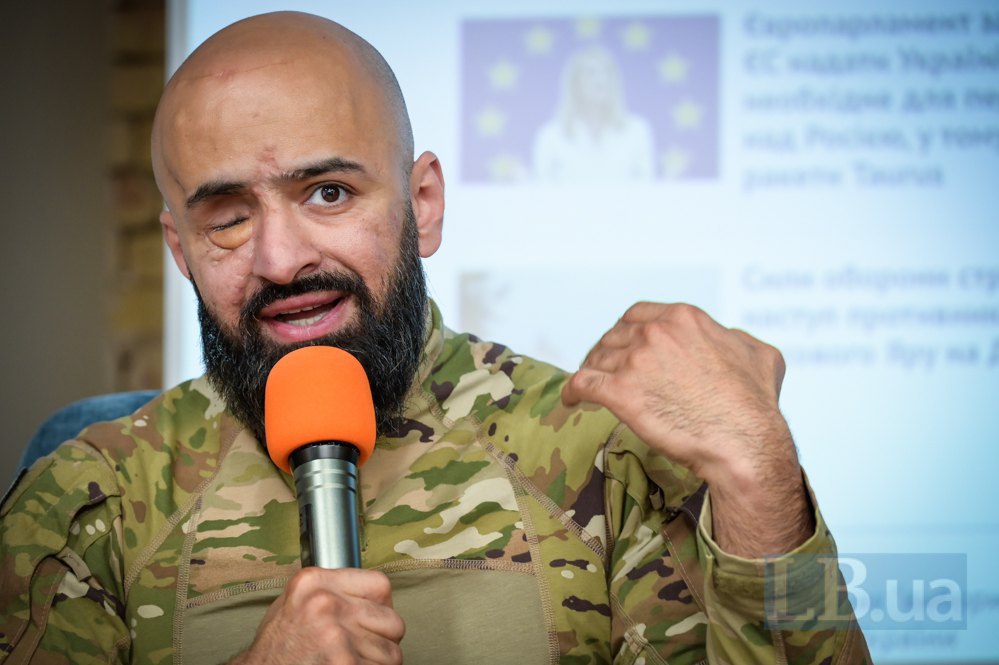
Self-identification is important in the socialisation of a veteran, said Yuriy Hudymenko. The fact that a person is a veteran should not be the top trait for him or her. And when a person has to show his or her combatant certificate twice a day in a bus, it is a daily reminder.
"Ten, 15, 20 years after you have been demobilised, you still identify yourself not as an entrepreneur in the first place, not as a father, not as a founder of something, but as a veteran. You remind yourself of that. That is why one of the most important parts of the policy is to socialise people so that they start to forget about it," Hudymenko stressed.
Roman Kostenko, a member of parliament and a soldier, is also convinced that veteranism should not be a profession.
"As a society, we need to take care of our veterans, but not to emphasise that after the war they are veterans and nothing else. It's important not to create a caste of people who don't have to do anything - everything is given to you because you are a veteran. We have to help, we have to do everything we can to ensure that these people are socialised and go on with their lives. This should be the basis of veterans' policy," Kostenko said.
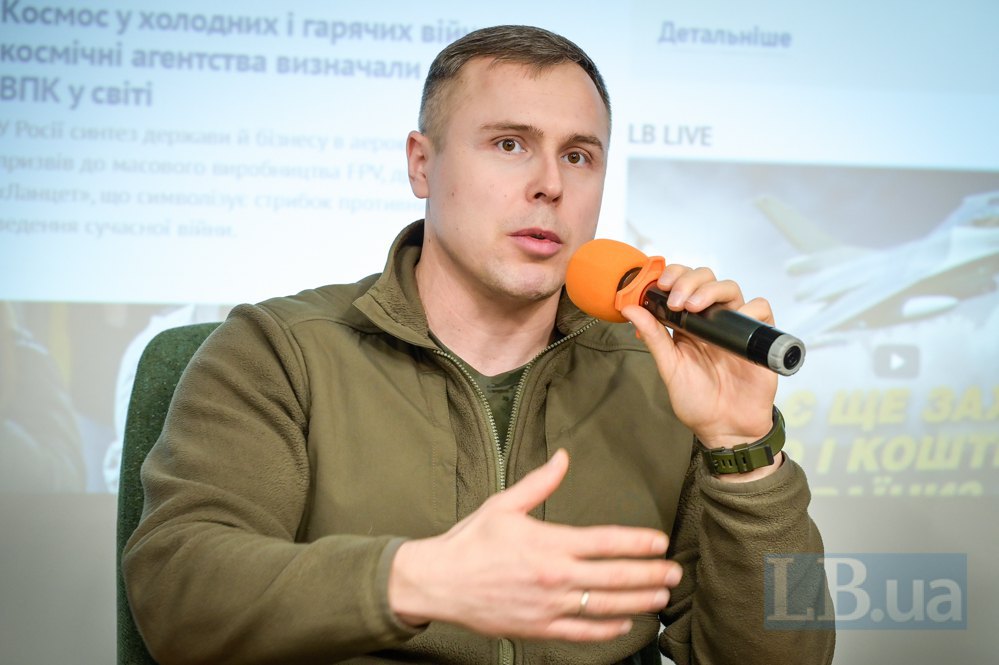
According to Oleksandr Porkhun, a representative of the Ministry of Veterans Affairs, the newest veterans' policy should move away from benefits and services and provide ongoing psychological support, rehabilitation, opportunities for higher education, retraining with subsequent employment, and support for veteran entrepreneurship. And the Ministry is already preparing a strategy for the transition from military career to civilian life.
"I support my fellow panelists: we all have different opinions, but we all agree that a veteran should not be a lifelong person. He may be a veteran in his heart, but in society he must first and foremost be a socialised person. And we, as a state, must help him in this," commented Porkhun.
Yuriy Hudymenko noted that the state still has time to do the right thing and give veterans their place in society, until the rule on demobilisation after 36 months of service is adopted. Then there will be a lot of veterans and they will have to fight for this place themselves.
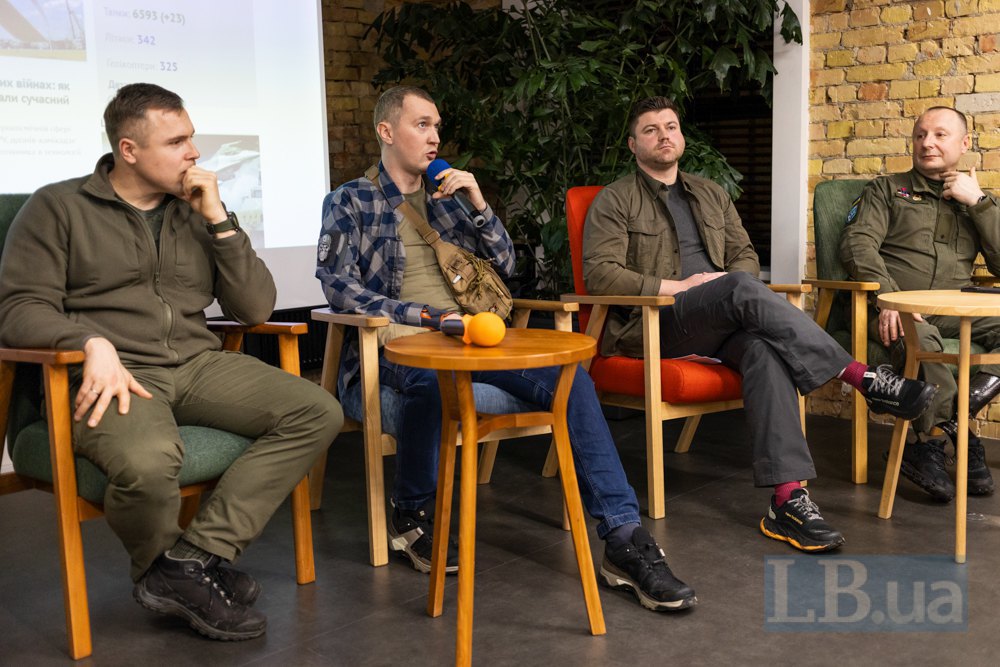
"There will be all the negative scenarios. There will be veteran alcoholism. There will be veteran drug addiction. There will be veteran suicide. Veterans will definitely be involved in crime. This is a fact. This is true in every country in the world. The question is the scale. Will it be one per cent of veterans, or will it be conditionally 50 per cent.
We are now in a position where things can either be much worse than they are today or much better. But things cannot go on like they are today for long. Accordingly, there is still a chance now, a hope that things will be much better," Hudymenko concluded.
